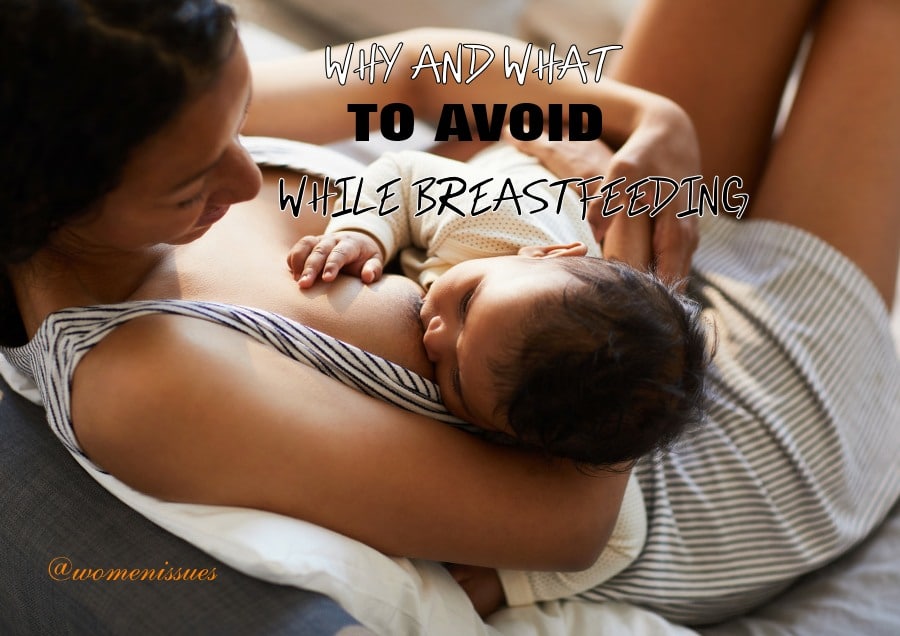Why and What to Avoid While Breastfeeding
Breastfeeding is the ordinary method of providing young babies with the supplements they need for healthy growth and development. Breastfeeding is the most natural way to nourish your infant. It gives all the nutrition your baby needs during the first six months of life, satisfies their hunger and thirst at the same time. It also helps to create a loving bond between you and your infant. Also, breastfeeding mothers derive some benefits like lowering the risk of breast cancer and ovarian cancer. So, here are some of the foodstuffs to avoid when breastfeeding.
1. Peppermint
Peppermint is a well-known herb that is used to make a fabulous tea. The herb peppermint is known to dry up milk supply and so is not recommended while breastfeeding. You can have an occasional cup of peppermint tea but if you already have a low supply of milk then you will have to avoid it totally.
2. Chocolate
Everyone loves chocolate but not everyone knows where it comes from. Besides the number of health benefits that chocolate is associated with, it also has its own bad effects like causing weight gain amongst others. Women sometimes think that eating chocolate whilst breastfeeding has a laxative effect on the baby. If you eat chocolate whilst breast feeding, monitor your baby’s behaviour to see if she becomes fussy or has runny poop, that means it is time to cut back or eliminate it altogether. Chocolate has caffeine content and so it should be consumed in limited amounts.
3. Spicy foods
Around the globe, there are many fans of spicy foods and you might be one of those who can gorge on the spiciest dishes. When you are breastfeeding your child, it is pretty safe to eat spicy foods but eating too spicy foods can make your baby irritant. A small amount of spicy foods will find their way to your baby but that would not affect the child badly. You can eat spicy foods but don’t just overdo it and maintain a healthy diet balance at all costs.
4. Caffeine
Firstly, we start by defining what caffeine is: Caffeine is a chemical found in tea, cola, guarana, coffee, mate just to mention a few. Many people around the globe use caffeine to improve mental alertness, but it has many other uses. So, it is not advisable for someone who is breastfeeding to take caffeinated products. It is important to know that caffeine does work its way into your breast milk. Overdose of caffeinated drinks can keep your baby awake for longer intervals by interrupting his or her sleep. So, avoid more than two cups of coffee or tea a day and if you are an addict to tea try herbal tea.
5. Alcohol
Not drinking alcohol is the safest option for breastfeeding mothers. Alcohol levels are usually highest in breast milk 30-60 minutes after an alcoholic beverage is consumed, and can be generally detected in breast milk for about 2-3 hours per drink after it is consumed. However, the length of time alcohol can be detected in breast milk will increase the more alcohol a mother consumes. If you exclusively breastfeed alcohol consumption is a big no because it gets into breast milk and hinders baby’s growth and sleep. If you do end up drinking a glass of beer then wait for 2 hours before you breastfeed your baby. If you use a breast pump then pump up milk before you consume alcohol.
6. Fish
When you are breastfeeding, you don’t have to totally avoid fish, but you do need to be selective about what types of seafood you are eating. Fish is rich in protein and omega-3 fatty acids but they may also contain high amounts of mercury content which is not good for the baby’s developing nervous system. Some fish can be high in mercury, which can find its way into your milk supply. So, when breastfeeding know the type of fish before you eat.
7. Garlic
If you are breastfeeding, and you like eating garlic, it is perfectly safe for your baby, and it may even help increase your milk supply. Almost 95% of what we cook involves garlic so you can’t completely avoid garlic in your diet, but over consumption of garlic is not good for babies. Be aware though, that garlic can trigger colic in some babies, so you may need to limit it for a while.
8. Citrus
You may have heard that the acid in citrus fruits can upset baby’s stomach, but most babies actually have no problem after mom eats citrus. In the case that your baby has a problem with citrus, you can notice fussiness or even diaper rash. So, when you are craving some vitamin C, try having some pineapple or mango instead.
In conclusion, we can say those eight foods are some of the foods that a breastfeeding mother has to avoid. However, these foods affect babies differently, so know the types of food that your baby reacts to.


No Comment